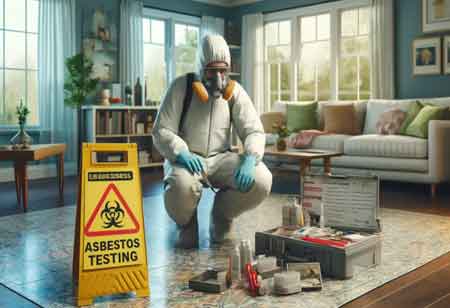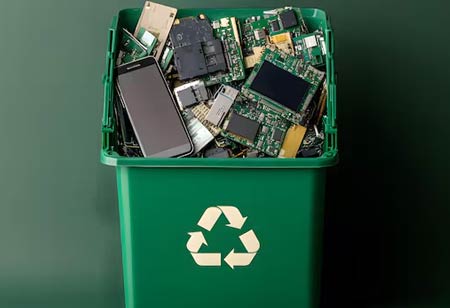Thank you for Subscribing to Environmental Business Review Weekly Brief
The Significance of Environmental Testing
Environmental testing plays a pivotal yet often underestimated role in combating pathogens and contaminants.

By
Environmental Business Review | Thursday, November 02, 2023
Stay ahead of the industry with exclusive feature stories on the top companies, expert insights and the latest news delivered straight to your inbox. Subscribe today.
In healthcare, environmental monitoring is essential for identifying and curtailing local microcontaminants, preventing their spread to patients and staff. Contamination during the creation of medical products can result in severe health crises, especially among individuals with compromised immune systems.
Fremont, CA: Environmental testing plays a pivotal yet often underestimated role in combating pathogens and contaminants. Despite its precision and potential for widespread application, it remains a cornerstone of various industries and enterprises.
In today's world, where the average person encounters an array of microscopic contaminants daily, ranging from manufacturing facilities to food packaging, the significance of environmental monitoring cannot be overstated. These invisible threats can potentially jeopardize public health, making it imperative to conduct comprehensive environmental tests. This not only ensures the well-being of individuals but also preserves the integrity of our environment.
The diverse applicability of environmental monitoring extends across numerous sectors:
Medical and Pharmaceutical Manufacturing Industries:
Environmental monitoring is indispensable within the medical and pharmaceutical manufacturing sectors. The primary objective is to mitigate contamination risks for both employees and patients. Regulatory bodies, including the stringent Food and Drug Administration (FDA), hold these industries to rigorous standards, imposing severe legal consequences for non-compliance. This regulatory oversight acts as a strong deterrent, ensuring that manufacturers consistently perform testing and address contamination issues proactively, well before they could endanger consumers.
Construction and Building Management:
Environmental testing plays a crucial role in construction and building management. A clean and contaminant-free environment is essential in public and workplace settings. Environmental tests conducted at various stages of construction and building management help mitigate potential risks associated with negligence. These tests are pivotal for fostering trust and ensuring the security of modern society.
Healthcare Facilities:
In healthcare, environmental monitoring is essential for identifying and curtailing local microcontaminants, preventing their spread to patients and staff. Contamination during the creation of medical products can result in severe health crises, especially among individuals with compromised immune systems. Manufacturers must perform environmental testing in areas where their products are assembled or produced to prevent the presence of harmful pathogens on packages, containers, or the products themselves.
Food Industry:
Food products, such as meat and raw vegetables, are particularly susceptible to contaminants. Outbreaks of foodborne illnesses, such as Salmonella and Listeria, can have grave consequences for public health. Environmental testing aims to identify contaminants, pathogens, and traces of other products that may result from cross-contamination. For instance, manufacturers producing both crackers and peanuts must meticulously ensure that no cross-contamination occurs to avert health emergencies and allergic reactions.





